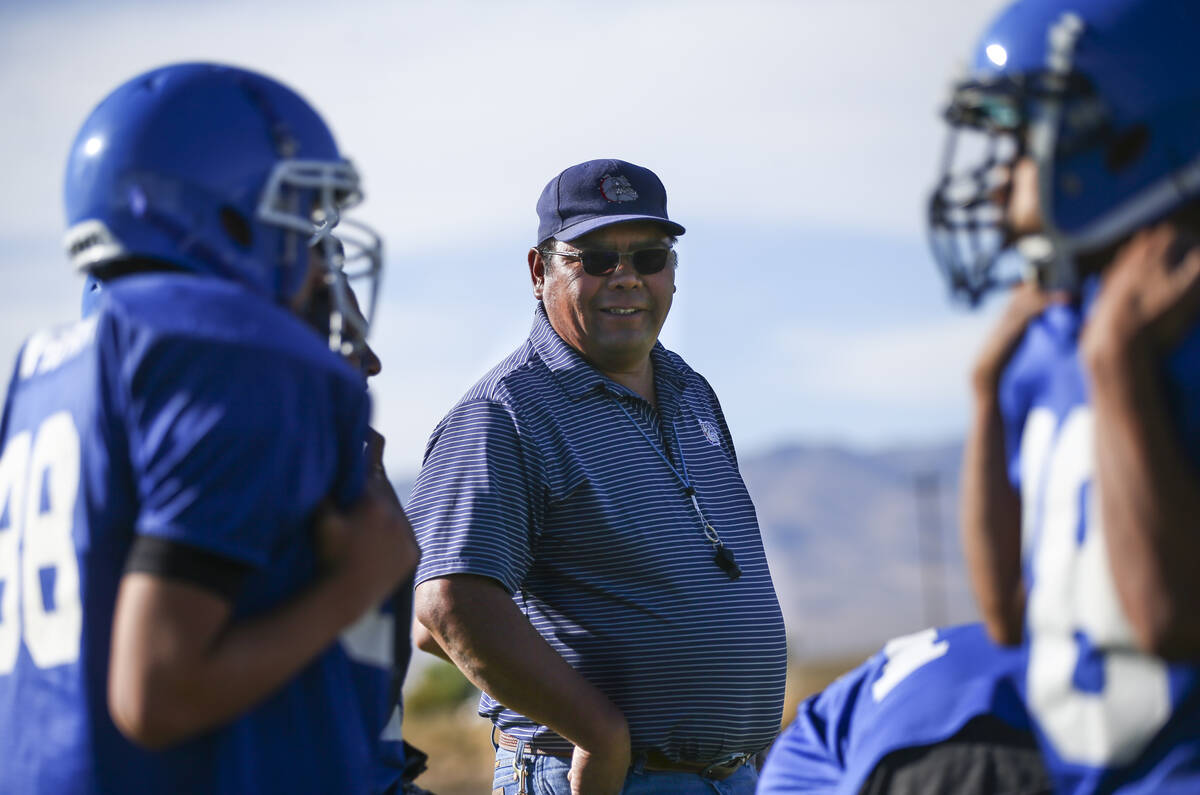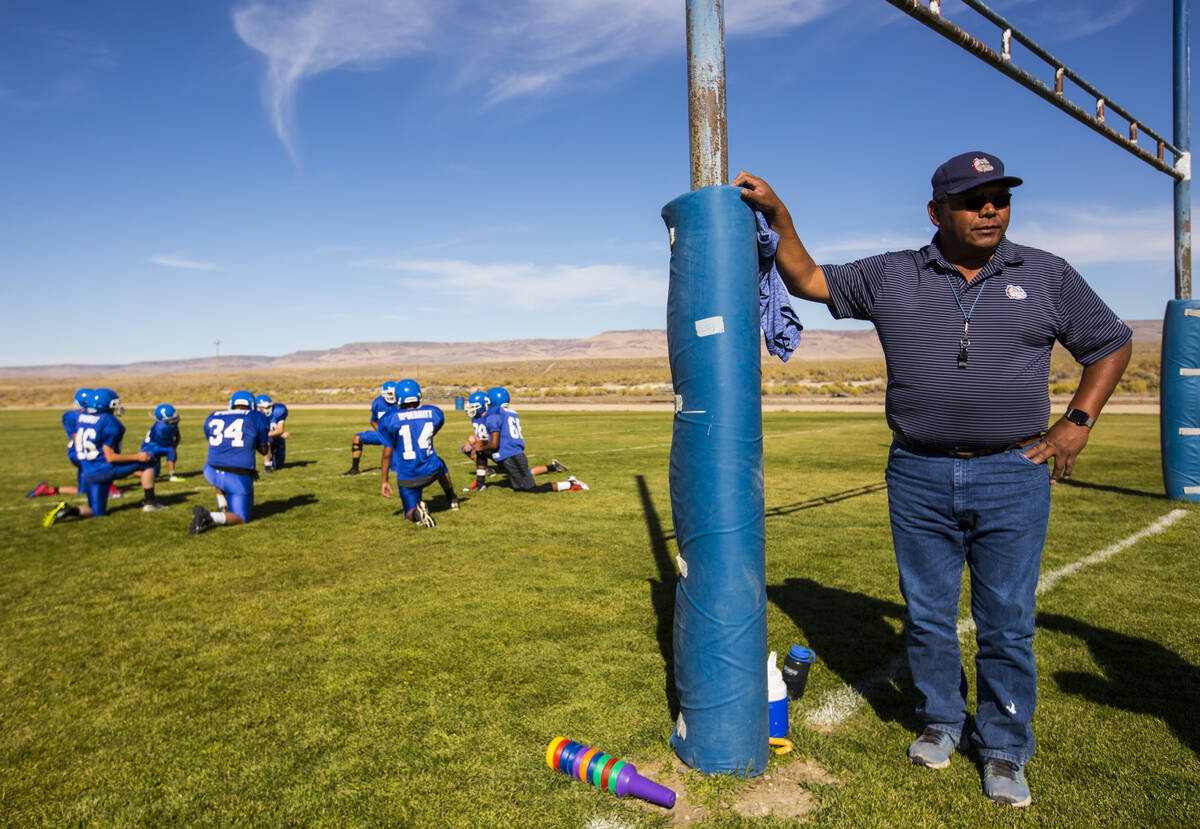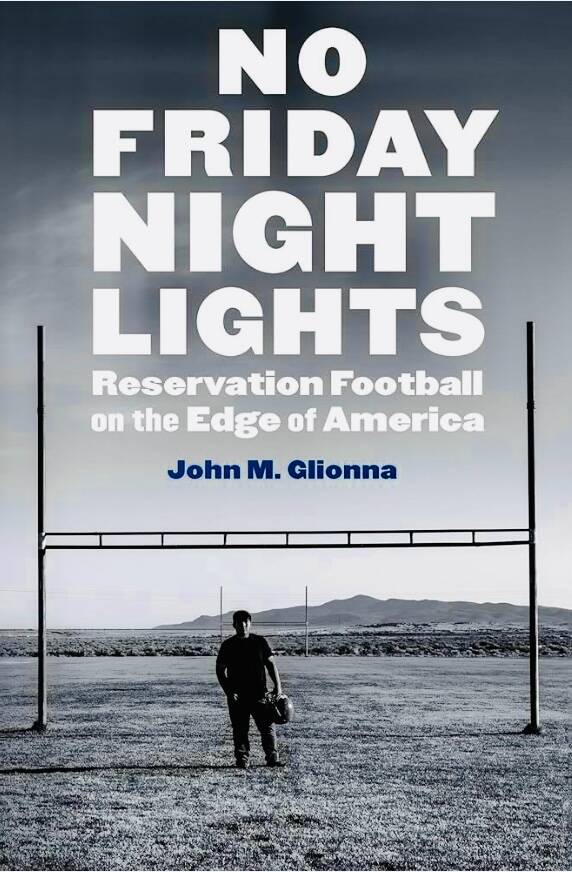Writer finds something bigger than football in tiny Nevada town
John Glionna has made a career as a rover, on the move from cities to towns to dusty little crossroads in search of stories to tell.
He covered everywhere from North Korea to New Zealand as a foreign correspondent for the Los Angeles Times, then most of the American West as the paper’s Las Vegas bureau chief. Later, Glionna traveled virtually every backroad in Nevada as part of a series of stories for the Las Vegas Review-Journal.
One of those features, about the hard-luck McDermitt Bulldogs high school football team, stuck with him enough that he revisited it by putting down roots, more or less, in the tiny blip of a burgh in Humboldt County on the Oregon border. The resulting stories make up “No Friday Night Lights: Reservation Football on the Edge of America,” his latest book of literary nonfiction.
“I had come at it,” Glionna says, “from a more sociological perspective of, like, ‘What’s it like to be out here in the middle of nowhere? And let’s use football as our metaphor.’ ”
It’s a good thing football was only intended as the backdrop. The season he set out to chronicle, like a handful of seasons before it, was canceled because McDermitt couldn’t muster enough players to field an eight-man football team.
For his original story, Glionna spent about two hours in McDermitt, something he refers to as “parachute” and “hit-and-run” journalism. This time, he moved there in August 2022 and left that October. He drank beer at McDermitt’s Say When casino and made Saturday trips to the Walmart in Winnemucca, 70 miles south.
“By spending enough time there,” he says, “the town came alive before my eyes.”
With the residents now his main focus, Glionna ended up writing about his landlords: Junior, a former rancher who kept a small plane in his garage, and Lorraine, the school bus driver who rescued stray dogs.
Glionna told stories from the Fort McDermitt Paiute-Shoshone Reservation and became friends with Richard Egan, the Bulldogs’ head football coach and assistant basketball coach. He’s a descendant of Chief Egan, who was killed in battle near Emigrant Springs, Oregon, in 1878. The chief’s head was removed and taken to Washington, D.C., where it sat in museums until it was repatriated in 1999.
By staying put and taking time to smell the wildflowers, Glionna was able to tell deeper stories than that of the football team, which he says became “a secondary character manifesting what was going on with the history of the town.”
In other words, both were dying. Slowly.
McDermitt’s mining operations, the nation’s last primary producer of mercury and the area’s main source of employment, ended in 1990. Life there hasn’t been the same since.
“Dead and dying towns weren’t always that way,” Glionna says, hinting at McDermitt’s better days. “We just see them in their last gasps.”


























